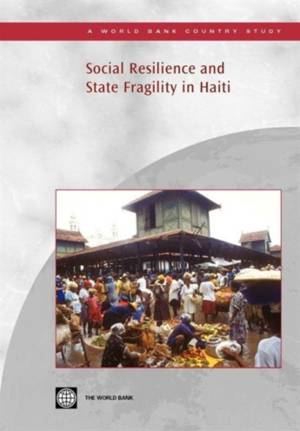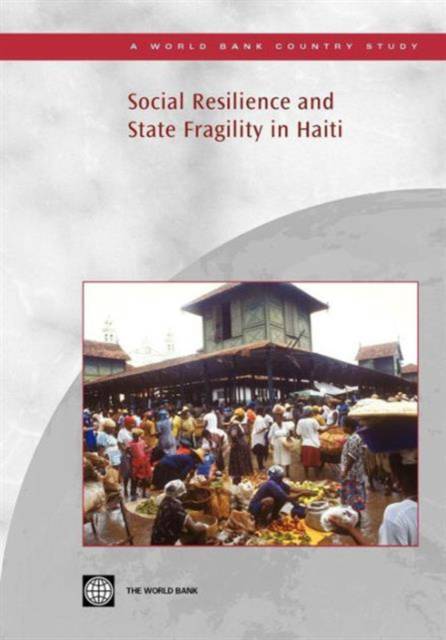
- Afhalen na 1 uur in een winkel met voorraad
- Gratis thuislevering in België vanaf € 30
- Ruim aanbod met 7 miljoen producten
- Afhalen na 1 uur in een winkel met voorraad
- Gratis thuislevering in België vanaf € 30
- Ruim aanbod met 7 miljoen producten
Zoeken
Social Resilience and State Fragility in Haiti
€ 25,45
+ 50 punten
Omschrijving
Haiti is a resilient society whose rural communities in particular have developed coping mechanisms in response to a long history of underdevelopment and political instability. The country's religious, cultural, and artistic life is highly diverse and vibrant. Like other fragile states, however, Haiti is also beset by widespread poverty, inequality, economic decline, unemployment, poor governance, and violence. This Country Study examines Haiti's conflict-poverty trap from the perspective of the triangle of factors that have been identified as its main components: (a) demographic and socioeconomic factors at the individual and household levels; (b) the state's institutional capacity to provide public goods and manage social risks; and (c) the agendas and strategies of political actors. The report's three main chapters explore the nature of these components. The closing chapter considers the linkages among them.
Specificaties
Betrokkenen
- Uitgeverij:
Inhoud
- Aantal bladzijden:
- 144
- Taal:
- Engels
- Reeks:
Eigenschappen
- Productcode (EAN):
- 9780821371879
- Verschijningsdatum:
- 1/09/2007
- Uitvoering:
- Paperback
- Formaat:
- Trade paperback (VS)
- Afmetingen:
- 180 mm x 252 mm
- Gewicht:
- 267 g

Alleen bij Standaard Boekhandel
+ 50 punten op je klantenkaart van Standaard Boekhandel
Beoordelingen
We publiceren alleen reviews die voldoen aan de voorwaarden voor reviews. Bekijk onze voorwaarden voor reviews.










